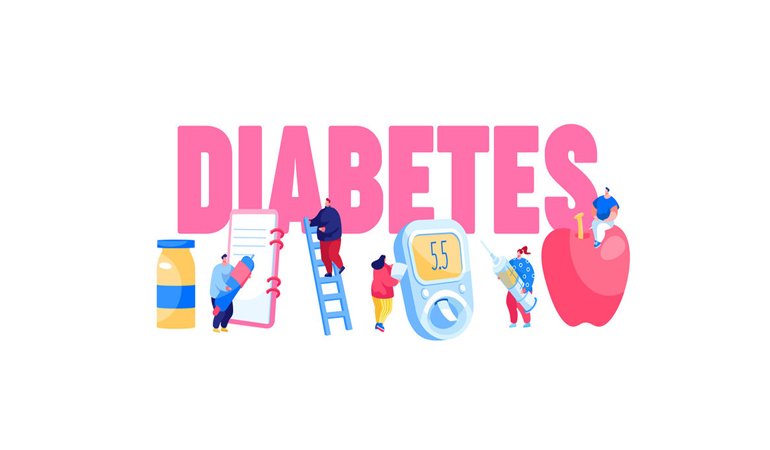


The condition Diabetes mellitus (commonly referred to as Diabetes) is increasing day by day around the globe. Modern western diet and lifestyle is challenging our bodies’ abilities to cope. Excess sugar and low nutrient foods, low levels of physical activity, and highly stressful ways of living are causing diabetes.
As the oldest medicine, Ayurveda provides information to assist in the treatment of almost all diseases.
Diabetes is considered a major disease (maharoga) since it affects all parts of the body and every cell of the human physiology.
Type 1 Diabetes commonly known as Juvenile Diabetes
since it is mostly diagnosed in children, is an Autoimmune condition in which the body destroys its own insulin -producing cells and ceases to be able to naturally regulate blood sugar levels. Without the capacity to handle blood sugar, the body is starved for nutrients and is unable to convert sugar into energy in the cells.
Type 2 Diabetes is a type of insulin-resistant condition
where even though the body may produce insulin, it is impaired in its ability to absorb it into the cells where it can do its work of converting sugars into energy.
Type 2 diabetes is commonly caused by poor diet, and low physical activity. It is considered to a major part of the obesity epidemic.
What cause diabetes?
Ayurveda considered Diabetes as doshic imbalance.
It arises in two ways:
(1) aggravation of the vata dosha due to tissue depletion, and/or
(2) obstruction of the channels (srotas) caused by excess kapha dosha and fatty tissue.
Physical and mental causes,
● Sedentary lifestyle
● Lack of physical activity
● Excessive sleeping and resting
● Kapha-increasing lifestyle (slow, sluggish, unenergetic in mind and body)
● Stress, grief, fear and worry
● Genetic disposition
● Unwholesome Food and drink, improper or heavy diet
● Excessive consumption of milk and milk products
● Excess consumption of meat, especially meat from animals living in water and marshy regions (because this type of meat increases kapha)
● Food, drink and dishes prepared from young grains (e.g. freshly harvested rice is hard to digest, whereas 1-2-year-old rice is lighter and easier to digest)
● Excessive sugar and sugar products
● White bread, white flour, unhealthy carbohydrates
Risk factors for developing type 2 diabetes,
●Over 45 years old
●Obesity / overweight
●Family history of type 2 diabetes
●Pre-diabetic condition such as insulin resistance
●No exercise, sedentary lifestyle
●Low levels of ●High-Density ●Lipoproteins (HDL) or high levels of triglycerides
●High blood pressure
●History of gestational diabetes
●Diet with high saturated fats and simple carbohydrates
●High alcohol intake
●Women with poly-cystic ovarian syndrome
Clinical symptoms of diabetes mellitus
● Excessive urination
● Urine similar to honey — sweet and astringent
● Cloudy (turbid) urine with suspended particles
● Pallor (paleness) and dryness of the body
● General debility and weakness
● Bad body odour
● Emaciation and weak sexual interest
Ayurvedic management of diabetes
Diabetes mellitus comes under the category of maharoga, that is, it is a disease difficult to cure completely. Ayurveda can, however, help control diabetes with proper diet, lifestyle, herbs and treatments. Ayurveda can also treat acute symptoms of the disease to bring relief and moderation.
Ayurvedic management of diabetes depends upon the mind-body constitution of the individual and the overall strength of the person with the condition.
If an individual is obese, the ayurvedic approach is to reduce fats and eliminate cellular toxins. It is important to increase physical activity, with an emphasis on yoga and light cardio exercise. Fasting therapy using juice, water, or a mono-diet of kitchari, depending on the person’s constitution and requirements, is also recommended.
DETOX THERAPIES
(panchakarma) for cellular cleansing (including abhyanga, purgation, enema and nasya) is administered under the supervision of an ayurvedic specialist.
If the individual is chronically ill, has low immunity, or low body weight, the ayurvedic approach is to build body tissue and strengthen the immune system for repair and replenishment.
A panchakarma detox including oil enemas is very beneficial for cleansing and nourishing the body. Regular ayurvedic oil massage (abhyanga) or shastikashali pinda swedana (rice bolus massage) is also recommended.
Have Questions or suggestions ? Please let us know, We're more than happy to help you